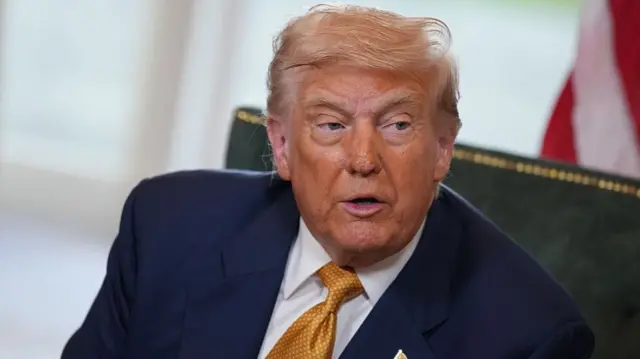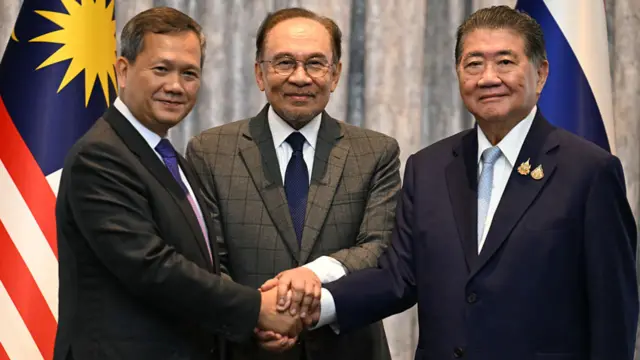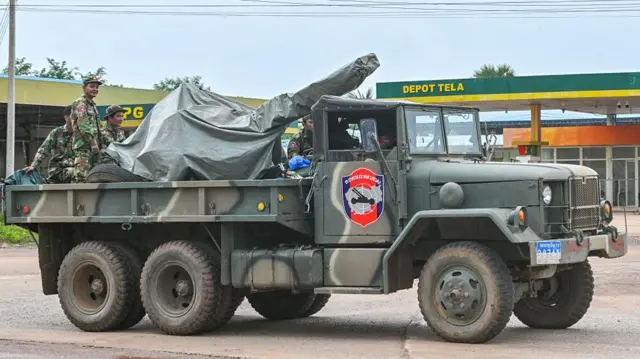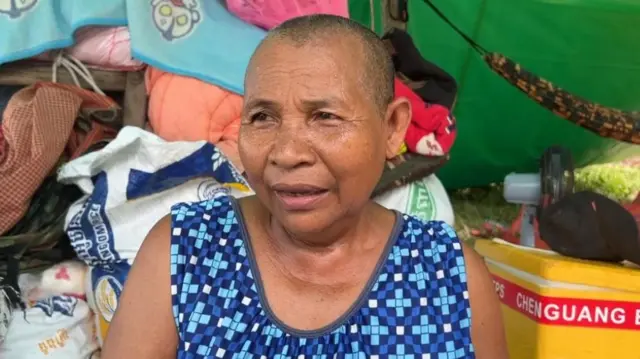We are pausing our live coveragepublished at 12:27 BST 28 July
Thailand and Cambodia have agreed to an "unconditional ceasefire" at the end of peace talks in Malaysia today.
The South East Asian neighbours are ending hostilities following pressure from US President Donald Trump, who refused negotiate a trade deal with them unless fighting stopped.
Here are the main developments of the day as we wind down our live coverage
- The "immediate and unconditional" ceasefire takes effect at midnight tonight
- Cambodian PM Hun Manet said it is now "time to start rebuilding trust and confidence"
- Acting Thai PM Phumtham Wechayachai said his country is committed to peace and negotiated "in good faith"
- Malaysian PM Anwar Ibrahim hosted the peace talks in Putrajaya, in his capacity as chairman of the regional bloc Asean
- But even with a ceasefire, fighting will be difficult to stop without a verified withdrawal of troops by both sides, which would take many days to carry out, writes our South East Asia correspondent Jonathan Head
- The fighting over a disputed border escalated dramatically last week, and since then, has killed at least 33 people and displaced tens of thousands
You can read our latest news story here.





